Catching up…
EA Worldview’s Ukraine Up-date- hop over to Scott’s amazing hourly Ukraine up-date page. I’ll fill in with some bits and bobs.

Stories we’re following…

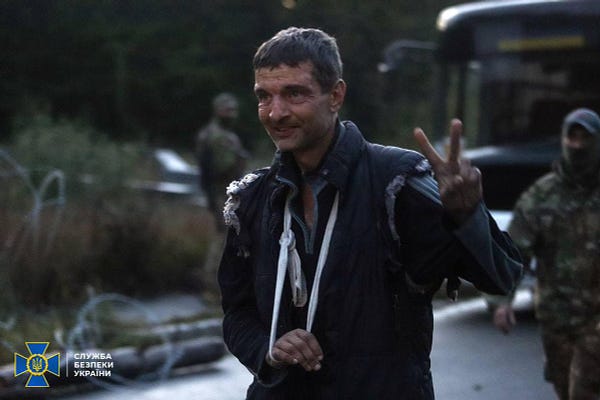
Izyum investigation

Sham referenda, sham observers
Gianfranco Vestuto had been a sought out guest on Italian talk shows through the winter to June. He was branded as a ‘trusted independent voice in journalism’. He ran for office in the south for the League and in Milano for mayor. Today he runs the news agency ‘Russia Today’ and an association for the defense of Italian businesses in the Eurasian market.

Other sham observers include:
Eliseo Bertolasi: Veneto-Russia Cultural Association, journalist for the publication the Voice of Russia in Donbas
Maurizio Marrone, Piedmontese regional councilor of the Brothers of Italy, and the runs the "representative office" of the so-called DNR in Turin (Italy).
Ulrich Eme, the representative of the "Alternative for Germany" party and former Bundestag deputy;
Xavier Moreau, the Co-founder of the Center for Political and Strategic Analysis Startpol (France)
Alexandr Giurgiev, the head of the party "Serbian League"
Palmarino Dzokkatelli, the Head of the "representative office" of the so-called DNR in Verona (Italy)
Chris Romano, the Head of the "representative office" of the so-called DNR in Belgium
Johan Bekman, Director of the "representative office" of the so-called DNR in Finland
Steffen Schaller, director of Energie Waldeck-Frankenberg, a German energy company
Nice guys.

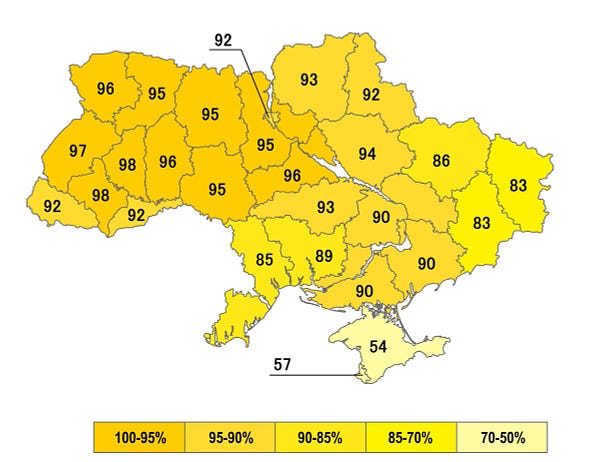
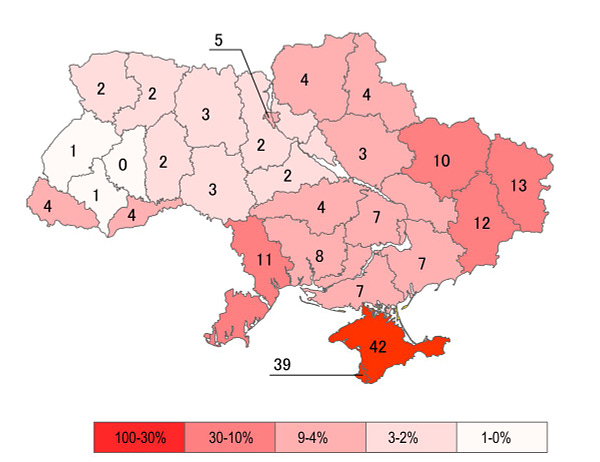
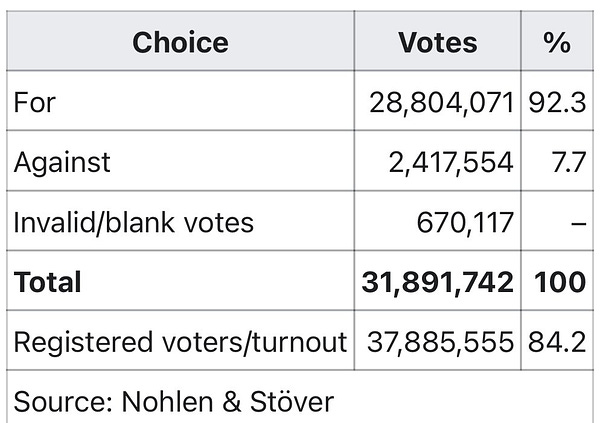
The Price of Referenda- Novaya Gazeta- Sept 23 Newsletter
There will be no total international recognition of new territorial acquisitions. The Crimea example is a sufficient evidence — eight years have passed and only five countries have officially recognized it a part of the Russian Federation: Venezuela, Nicaragua, Syria, Afghanistan and the DPRK (apart from the unrecognized Abkhazia and South Ossetia, and so far independent "DPR" and "LPR").
The referenda results will undoubtedly be condemned by the majority of delegations in the voting at the UN General Assembly (which, of course, will take place after the announcement of the referenda results and Russia's consent to admit these territories as its part).
Undoubtedly, additional sanctions may be imposed — personal (against the referenda organizers) and sectoral — by those who have already introduced them (these plans have already been announced). Moreover, there is still a reserve for tightening and expanding secondary sanctions, which can additionally rule out any plans to circumvent existing sanctions via countries that have not formally joined them, but do not want to become victims of secondary sanctions.
The danger of escalation in Ukraine will increase sharply. The Russian Federation will deem the newly acquired territories to be a part of the Russian state, and Ukraine, which is supported by NATO countries politically and with arms supplies, will never give them up. Thus, the extent of the "red line" (the non-proliferation of the conflict to the Russian territory), declared by the Russian Federation, and the number of territories located in this danger zone will increase dramatically.
The scope of opportunities for Russia and Ukraine to negotiate a cessation of hostilities will be drastically reduced. Ukraine's leaders (apparently all of them) will not accept such a large-scale loss of territory.
Undoubtedly, the military strengthening of NATO's eastern flank will take place (especially under the pressure of the Baltic and Central European countries neighbouring Russia).
Any prospects to resume U.S.-Russian negotiations on the strategic stability and arms control will become even more illusory.
Edward Lucas, Kremlin elites are poised for Putin’s grip on power to falter- The Times UK
Vladimir Putin’s blustery speech on Wednesday morning was meant to sow panic in the West, with its threats of total war, including the use of nuclear weapons, to defend Russia’s land grab in Ukraine. In reality, it signals panic in the Kremlin.
The unexplained 12-hour delay in its release — television schedules had been cleared for the previous evening — was symptomatic of the disarray. So too was Putin’s glassy-eyed countenance, awkward posture and stilted delivery. Military, diplomatic and political setbacks are multiplying. Out of touch, out of options and out of luck, Putin is entering the end phase of his reign.

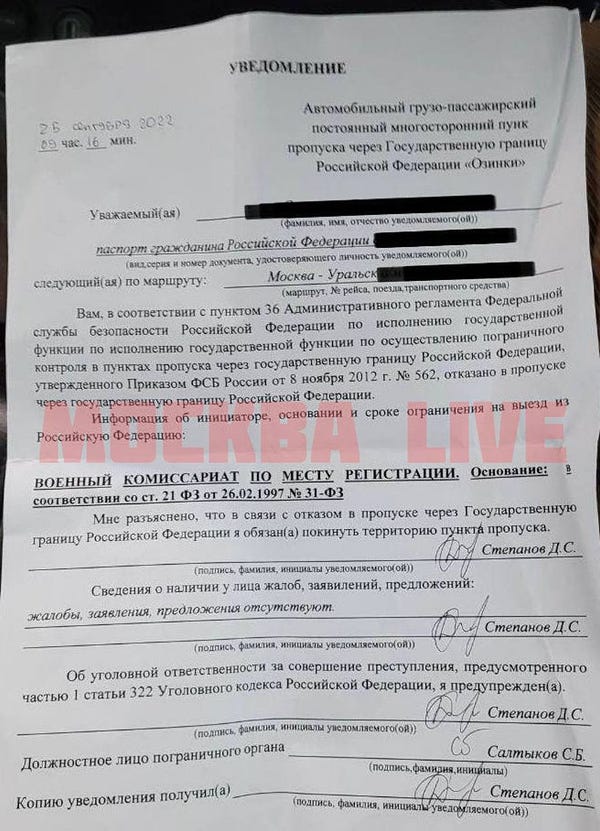
Mobilisation protests
On Sept. 24, Russian dictator Vladimir Putin signed into law amendments to the Russian Criminal Code toughening punishment for desertion, looting, and voluntary surrender, as reported by the Russian news agency Interfax.
Those surrendering will now face from three to ten years in prison. Soldiers who leave their military base without permission will also face up to 10 years in prison. Those refusing to participate in military or combat operations will now face up to three years in prison.
For looting, Russian soldiers will face up to 15 years in prison. Multiple reports show that Russian troops have been engaged in mass looting in the occupied areas of Ukraine.
Euan MacDonald: “Russian empire already feeling the strains of Putin's mobilization. The draft disproportionally affects "non-Russian" Russian citizens - and they know it. Chechnya's Kadyrov has already refused to send more troops. Will other regions follow suit?”

The pro-Kremlin editor of Russia’s state-run RT news channel expressed anger that enlistment officers were sending call-up papers to the wrong men, as frustration about a military mobilisation grew across Russia.
“It has been announced that privates can be recruited up to the age of 35. Summonses are going to 40-year-olds,” the RT editor-in-chief, Margarita Simonyan, railed on her Telegram channel.
“They’re infuriating people, as if on purpose, as if out of spite. As if they’d been sent by Kyiv.”

Meloni set to win elections in Italy
I’ve done my bit in what most analysts say is the worse electoral campaign ever: my vote is cast. We won’t have any results until later on tonight.
Most people I spoke with, normal people (hair dressers, construction workers at my local bar, my newsagent, my cigarette shop vendor, waiters at my pizzeria, the guys at my husband’s club, and colleagues at work) feel the rad-right coalition will win in a landslide, and they also say that ‘there’s nothing we can do about it.’
Italians never say how they’re going to cast their vote: it’s impolite. In order to get an idea of what people think, you need to read between the lines and what they say about the issues in the national news.
Most of the people I spoke with say they are ‘fed up’ with Italian generosity towards ‘dirty immigrants’. The rad-right propaganda aimed at denigrating those ‘dirty immigrants’ really works. Let’s see if ‘normal people’ will vote accordingly or if they’ll think twice before bringing in a coalition that may radically change the constitution and their lives.
The vote will reflect various Italys: geography will play a role. In the south, I predict the 5 Stars and the Meloni coalition will sweep up the seats. The Vatican and the clans have been quietly campaigning for them. Italy’s centre, the bastion of the Democratic Party, will lean towards the centre-left and left, and the north will go with Meloni’s coalition. The business sector has been promised that Italy will stay within the EU, and that seems to have assauged their fears.
What remains to be determined is how the large urban centres (Milano, Torino, Bologna, Rome) will vote, Watch out for Torino, which can serve as a barometre. They’ve historically been the first to tally their votes and they’ll probably be the first large urban area to give us an indication is the other coalitions have any chance at all.
Another mystery will be how well Salvini’s League and Berlusconi’s Forza Italia will do. Is this going to be a replay of the 2018 general election (M5S-League) but with Brothers of Italy at the helm?
Whatever the result, these politicians will have to deal with Italy’s myriad of economic, political and social issues, and will have to form a government that needs to survive.
Translation:
Journo: You could be the first woman prime minister in the history of the Republic. Is this a vindication for all Italian women?
Meloni: It’s a vindication for a lot of people. Not only for women. It’s a vindication for a lot of people who, in this country had to hold their heads down for decades. It’s a vindication for normal people that see things in a different way from the mainstream, the power system, that had common sense thoughts and for this they were treated as if they were children of a lesser god. It’s a vindication for democracy. It’s a vindication for the majority. Let’s see.


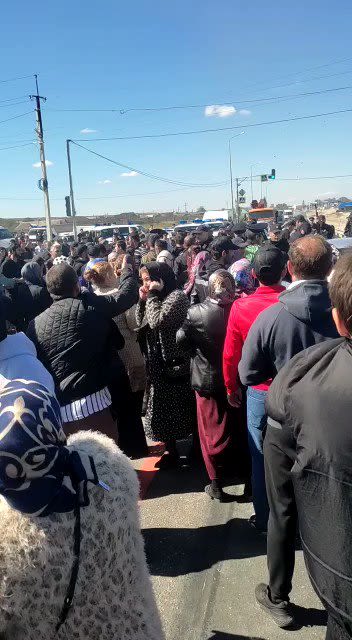



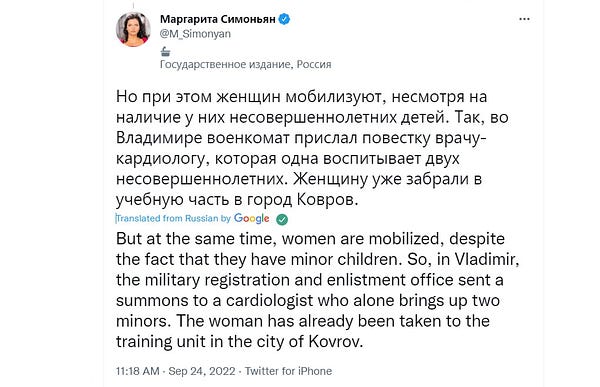
*Stratpol (Moreau)